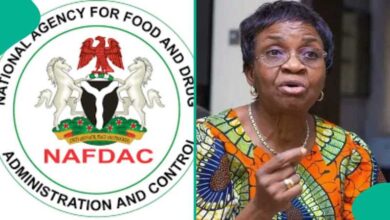FG Rules Out Lockdown Despite Rising COVID-19 Cases

Minister of Health, Osagie Ehanire
The Federal Government on Thursday ruled out the possibility of a general lockdown following the rising cases of Delta variant of COVID-19 in the country, citing economic and social implications.
This is as there are strong indications that the government may for the first time begin implementation of the ‘no work, no pay’ rule, a move targeted at testing its might against striking doctors, under the auspices of the National Association of Resident Doctors (NARD).
Minister of Health, Osagie Ehanire, gave these hints at the Presidential Villa, Abuja, when he said the strike this time around had no justification, especially when the country is in the middle of the COVID-19 pandemic.
According to Ehanire, not only was the strike uncalled for, it clearly breaches the International Labour Organisation’s protocol on the world of work.
He hinted that the “no work no pay policy” may come into full effect because it would be foolhardy for doctors to expect salaries from taxpayers’ money when they had delivered no services to the citizens.
Ehanire seized the weekly briefings coordinated by the Presidential Media Team to state that majority of the demands raised by the striking doctors were under the jurisdiction of state governments.
While appealing to the striking doctors to shelve their industrial action for national interest, he reiterated that most of the 12 demands raised by them have been met by government.
All these comes as senior doctors working as consultants in the health sector have threatened to join the strike.
Despite the 3rd wave Delta variant taking its toll in Nigeria with daily increase, NARD had insisted that its latest strike is indefinite until government budges.
Recall that the Federal Government took step towards halting incessant strike actions by members of the Nigeria Labour Congress (NLC), Trade Union Congress (TUC) and other labour bodies by gazetting the ‘no work, no pay rule’ in 2018.
Ehanire said, “On the strike, we have said openly that this is not a good time for doctors to go on strike. We’re having a strike for the third time this year that is not good. You have appealed to them. They’ll be having long meetings with young doctors to tell them that look we have a certain responsibility to our country.
“Every country that has difficult situation at this time should understand that responsibility is on all of us. If you have any problems, any grudges, let’s talk about it. If we can’t solve it now, let’s continue talking about it until we find solution, but don’t drop work.
“I think Nigeria is probably the only country in the world today where doctors are dropping work in the middle of a threat to the whole country.
“So that’s why we have advised. There has been no threat. Nobody threatened anything. Just appeal, all of us are doctors, all of us went through the same residency. We’re saying this is not the time, let’s continue to talk about it. Do not put people’s lives at risk. That’s what the Minister of Labour has been saying, that is what the Minister of Health has been saying. Nobody has threatened anybody with anything”.
Asked to comment on the existing threat handed to doctors to invoke ‘no work, no pay’, he said, “Yes, but that’s the standard thing. That’s International Labour Organisation’s (ILO) recommendation that if you didn’t work, then why will you take… your salary which comes from taxpayers’ money. So if you did not work, why should you be paid? Because if that is so, you can be encouraged to stay home for six months and your salary is running from public funds, from taxpayers’ money, and you have not given the community any service.
“So the ‘no work, no pay’ is not just the government regulation, its specifically stated in International Labour Organisation that if you do not work, if you have not given any service, you can’t expect salary. Because you can’t go to market and buy something for nothing. You must put down something, you must put down work.
“You can go to the market and take goods without paying. So if you work, you will be paid. And we are strongly in support of government meeting its obligations to pay what is agreed. We have said that we shall push for that, you know, working with the salaries and wages commission, the head of service, we are working to support that including pay all the insurance dues.
“But we cannot act against what the ILO says, pay people who didn’t go to work. I mean, I think before God and man you can defend that position, but there is no question of threats. These young doctors, they’re professionals, not just professionals, they are young people who we need to also mentor and treat well, to the best of all our capacity here.
“So, the strike is not what we want now, we would like to again use this platform to ask doctors to return to work, let us negotiate. We can do that among us.
“There are many areas the Ministry of Health supports them. But part of the problem we have is that some of the grudges that they have, or let us say the demands are with state governments not the Federal Government. So if the state government has not paid some people salary why go on nationwide strike.
“We say if you want to talk to that state, which I will support you and appeal to the state. Among the 12 original demands that they made, seven were state related. They’re not federal, Federal Government cannot compel a state to pay you a certain salary that you want.
“But the ones that are concerning us at federal level, many of them are not even exactly the Ministry of Health either. But we support them and strike is not a good tool to use. And especially when the health of the country is threatened. When people will come out or volunteer in other countries to work. That is not the time you withdraw your own service. And I think again, we’ll continue to appeal to young doctors not to use strike as a tool, especially at a time of national need that will not rest well with your conscience”.
On the 3rd wave of the Delta variant COVID-19, Ehanire raised the alarm that Nigerians are feigning ignorance on the severity of the virus, even though Lagos, Akwa Ibom, Ogun, Oyo, Ekiti and FCT have been placed under high risk states.
Although he ruled out the possibility of a general lockdown of the country, owing to the economic and social implications, he said there are growing concerns that Nigerians were already flouting the safety protocols put in place indiscriminately.
According to the minister, “Lockdown is a very, very last measure that countries are taking because lockdown stifles economic activity, restricts your own freedom and your business – both corporate business, government business, private business all are affected. So it’s not something you do easily. And of course, when we were compelled to have that lockdown at the beginning we learnt a lot of lessons. You know, at that time government provided palliatives to relieve the impact of it, if you couldn’t go to market, if you couldn’t do your business. But this is not what government is aiming to do, no government would want to do a lockdown.
“In countries where they have had serious threat, they have had to do what they call a precision lockdown like in the UK. In fact, Israel the other day announced that they’re doing some lockdown, but there’s no more generalised lockdown or precision of certain areas.
“So many countries do what they call precision lockdown. So that is not everybody that will be affected only certain areas to avoid too much damage to the economy, to social life. And we are not at the level yet where we are feeling that threat to do any lockdown. But I will tell you that many countries are not in generalised lockdown, precision lockdown.”
Dr. Faisal Shuaibu, Executive Director/CEO, National Primary Health Care Development Agency (NPHCDA), while briefing, said the Federal Government has procured over 29 million single dose of Johnson and Johnson COVID-19 vaccines at the rate of $298.5 million (over N122 billion).
He said the procurement was to enable the country vaccinate 70 percent of eligible members of the population and combat the spread of COVID-19.
He said the 176,000 doses of Johnson and Johnson vaccines that arrived the country with roll out schedule for Monday was part of 29 million doses the government procured.
The Director General of National Agency for Food Drug Administration and Control (NAFDAC), Professor Mojisola Adeyeye, said recent delays associated with the application of Moderna vaccines donated by the United States government was as a result of laboratory testing where some insignificant quantities had bar coding errors which had to be sorted.
Professor Adeyeye, who said the agency had been working round the clock to resolve the slight hitches which had nothing to do with the vaccine quality, also disclosed that in the previous vaccination exercises 12,000 Nigerians reported mild side effects.
On his part, Director General of Nigeria Centre for Disease Control (NCDC), Dr. Chikwe Ihekweazu, said recent outbreak of cholera is now in 22 states of the federation, warning that over 31,000 people have been infected and leaving 816 dead.
Source: independent.ng




